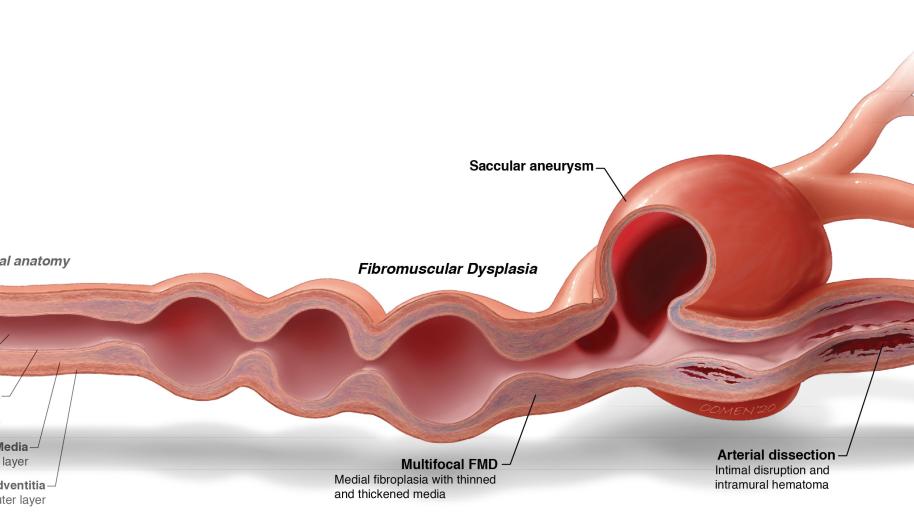- Arterial dysplasia is a term that refers to a group of conditions that affect the structure and function of arteries.
- Arterial dysplasia may cause arteries to become narrowed, enlarged, twisted or torn, leading to serious complications due to reduced blood flow or arterial rupture and bleeding.
Information & Resources | Research | Clinical Care
The Michigan Medicine Arterial Dysplasia Program and Precision Health Network brings together partners from across Michigan Medicine to advance our understanding of dysplasia-associated arterial diseases (arterial fibromuscular dysplasia, midaortic syndrome, dissections, and aneurysms) and to translate genetic and molecular discoveries into clinical practice.
Nearly 30 faculty across Michigan Medicine from 14 Departments and centers participate in our Precision Health Network.
Support and Funding

The Michigan Medicine Arterial Dysplasia Program & Precision Health Network are supported through the University of Michigan Taubman Institute Innovation Projects: Phenotyping in the Clinical Setting Program. The Network builds from DAAD-research projects funded by the following organizations:
-
NIH
- Department of Defense
- Patient-Centered Outcomes Research Institute
- Canadian Institutes of Health Research
- Heart and Stroke Foundation of Canada
- Doris Duke Charitable Foundation
- Michigan Biological Research Initiative on Sex Differences in Cardiovascular Disease
- Frankel Cardiovascular Center

